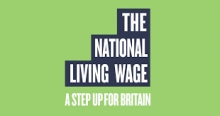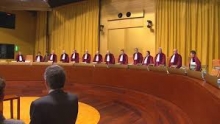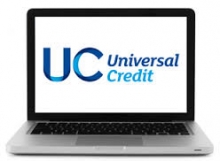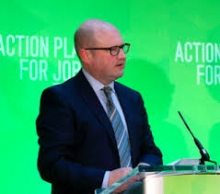Work TV
Watch our TV Channel dedicated to the ‘World of Work’. Explore our video library for informative videos featuring career opportunities at leading companies, franchising opportunities, further education and recruitment professions and their services.
Simon Collyer
HMRC
HMRC raised £536.8 billion of tax revenues this year, an increase of £19.1 billion (3.7%) on 2014-15 and paid out £40 billion in benefits and credits (approximately one-fifth of the government's total benefit expenditure). The taxes that contributed to most of this increase were Income Tax and National Insurance Contributions which together increased by £10.3 billion (3.8%); Corporation Tax which increased by £4.1 billion (9.9%); and VAT which increased by £2.1 billion (1.8%). Capital Gains Tax and Insurance Premium Tax also recorded significant increases, by 28.1% (to £7.3 billion); and 27.6% (to £3.7 billion) respectively. The annual cost of running HMRC was £3.2 billion in 2015-16 (£3.1 billion in 2014-15).
HMRC has begun to implement its plans to transform how it administers tax. Its vision is to have “the most digitally advanced tax system in the world”. By 2021, it expects to employ 16% fewer staff, substantially rationalise its estate and automate more of its processes. In the past year HMRC has made plans to invest more than £2 billion on its transformation in the next five years; launched digital accounts for individuals; announced plans to close 137 offices and the location of 13 new regional hubs; and secured agreement for its plans to replace its IT services contract, Aspire, which it has revised to reduce the risk of carrying out too much change too quickly.
National Living Wage Response
Employers have responded to the National Living Wage (NLW) by raising prices or reducing profits rather than cutting jobs, but more will have to look at productivity-enhancing measures in the coming years, according to a new report published today (Monday) by the Resolution Foundation.
The report, which includes the first major survey of business responses to the NLW since the policy’s introduction on 1 April, considers both the initial impact of the NLW and its longer term prospects in the wake of the UK’s decision to leave the European Union.
The survey of 500 businesses, carried out by Ipsos MORI in the weeks running up to the referendum, finds that around a third (35%) of businesses say the NLW has increased their wage bill this year, though only 6% said it had to a large extent. A further 16% of firms expect the NLW to increase their wage bill at some point in the future.
Of those firms affected by the NLW, the most popular short-term action taken has been to increase prices (36%), followed by taking lower profits (29%). The Foundation notes that while this ‘suck it and see’ approach is understandable in the short-term, many firms will need to adjust their action in the medium-to-long term.
It notes that around one in seven firms say they have already invested more in training (15%), and that one in eight (12%) firms report having invested more in technology. The Foundation says that making these productivity-enhancing approaches a mainstream response to the NLW will help to maintain the success of the policy in the coming years, and help tackle the UK’s wider productivity problems.
The survey finds little evidence of more negative responses to the NLW from employees. Roughly one in seven firms (14%) whose wage bill has increased say they have used fewer workers, offered fewer hours to staff or slowed recruitment. Just one in twelve (8%) say they have reduced aspects of the reward package, such as paid breaks, overtime or Bank Holiday pay. Encouragingly, a lower proportion of all firms plan to take these approaches over the next five years.
Crucially the Foundation adds that there is little evidence in official ONS data that the NLW has had any significant employment effect among lower paid workers. While employment has plateaued since the end of last year the Foundation argues that this has much more to do with pre-referendum business uncertainty and the general tightening of the labour market.
The Brexit outcome is likely to have a major impact on the labour market in the coming months and years. The Foundation notes that sectors such as food manufacturing and domestic services, which rely heavily on EU migrant labour and have a high proportion of staff affected by the NLW, are likely to face major changes in how they recruit and pay staff, and operate their business.
The report also says that the decision to leave the EU has significantly increased uncertainty about the outlook for earnings in coming years. This will have major knock on effects for the NLW because it is set as a proportion of typical worker earnings. Resolution Foundation analysis, using a variety of earnings forecasts, shows that weaker wage growth in the wake of Brexit could reduce the current projected value of the NLW in 2020.
Although there is huge uncertainty regarding the short-to-medium term effect on wage growth, with some projections more encouraging than others, the NLW could fall to between £8.70 and £8.50 by 2020. This is around 40p an hour lower than the £9 figure cited by the Chancellor when he announced the policy last Summer, and lower than the OBR forecast from March of £9.
The Foundation concludes that the case for the NLW remains strong. Increased post-Brexit uncertainty highlights the wisdom of it being pegged to typical wage growth, and reinforces the key role of the Low Pay Commission in taking a flexible approach in the coming years rather than being wedded to a particular cash figure.
Conor D’Arcy, Policy Analyst at the Resolution Foundation, said:
“The National Living Wage has already delivered a welcome pay boost to millions of workers. The big question has been how employers would respond. The evidence so far is that firms have absorbed some of the impact on their wage bill, while passing on a share of those rising costs to consumers through higher prices.
“Encouragingly, evidence of workers seeing their hours cut or even losing their jobs has so far been relatively limited. The challenge now is for firms to continue to respond positively to the National Living Wage, particularly by raising productivity.
“Brexit is likely to reshape the landscape in which many low-paying sectors operate. This means that the expertise of the independent Low Pay Commission is more important than ever, and ministers should carefully heed their advice.
“The National Living Wage is the right policy, and crucially pegs what those at the bottom are paid to what the typical worker earns, rather than to a fixed cash figure. This is a sensible approach, building in necessary flexibility in an uncertain post-Brexit world.”
Back to Work
I have just returned from the Via Sacra Walk and had a break from editing the ABC website. I had hoped to do some posting but the laptop I took had a mixed reaction to hotel wireless networks, and as such I decided to have a complete break.
We started from Pfetterhouse in the South and my job in team support during the walk was driving the team vehicle. This committment ended just above Lille as my job was done. On board a lot of the time was historian and educator Sir Anthony Seldon who is the official historian to Downing Street. Sir Anthony Francis Seldon, FRSA FRHistS FKC, is a British schoolmaster and a contemporary historian, commentator and political author, known in part for his biographies of John Major, Tony Blair and Gordon Brown.
We were very involved in the political turmoil of BREXIT as Sir Anthony’s new book on David Cameron'Cameron at Number 10' in paperback is coming out shortly and there was constant data and voice traffic between newspapers; The Times, Daily Mirror and also Number 10. These were exciting times.
There is a lot more to be said on the Via Sacra Walk, but having returned with the equivalent of severe jet lag, I am focusing on recovering.
For me this was a chance to glance into the system that produces our upper classes and a chance to be close to someone who has reached the very echelon of their profession. Anthony is hard to get to know; 'I am a man of few words Simon' he said, and indeed it was some days before we managed what most people might call a conversation. Slowly we warmed to each other and my driving and judgement came to be trusted. I came to like Sir Anthony, his dry sense of humour and his wit. His personal generosity. Anthony is enormously charismatic and going hiking in a suit and trainers he must be one of the most unusual walkers you could meet. The sight of Anthony - who runs marathons - suddenly dashing off in his suit like ‘Road Runner’ down a dusty path into the distance caused us all to laugh. He can be serious, judgmental and humorous all in the same five minutes.
Did I do a good job? ‘Simon the team would have been &^%$” £@ without you’ said a former public health CEO who was one of our walkers. I certainly learned a lot and not just about WW1.
I would especially like to thank our sponsors. You can read more here: http://www.viasacrawalk2016.org.uk/thewalk
I am back, I have survived the ordeal and when fully fit, away we go once more.

Sir Anthony Seldon
Brexit is for the rich, says George Osborne
Leaving the European Union would benefit the rich and hit those on the lowest incomes the hardest, Britain’s Chancellor George Osborne said Monday.
“When there is a recession, it is the poorer communities who are first hit and who suffer the longest,” Osborne
“Brexit might be for the richest in our country but I’ll tell you, people on low incomes, people on insecure incomes … they are the people who suffer when the economy fails and goes into recession.”
“Let’s not impose that on this country in just over a week’s time,” he said. Brits go to the ballot box on June 23 to vote on the U.K.’s future in the EU.
European Court of Justice Migrant Benefit Decision Delicate
The timing of Tuesday’s European Court of Justice ruling on Britain’s right to limit welfare benefits for migrant workers couldn’t be more delicate.
A defeat for the U.K. government on such a red-hot topic would be a shot in the arm for the “Leave” camp days before a referendum on the country’s European Union membership. Even a victory would remind Eurosceptic voters that judges in Luxembourg rather than London call the shots.
But despite the high stakes, academics, lawyers and judges are split over whether verdicts should be delayed in controversial cases with potential for skewing election results such as the U.K’s make-or-break vote on Europe.
‘Make Hay’
“Clearly if the court were to rule against the U.K. on this subject, the “Leave” side would, to use colloquial English, try to make hay with it,” said Curtice. “They will say that is just the kind of thing that the EU does, it goes to show we can’t make our own rules, etc. It would be rather embarrassing for the “Remain” side, if that were to happen.”
How the bloc deals with asylum seekers and migrant workers has become one of the most contentious points of the Brexit campaign. The biggest influx of refugees to Europe since World War II has put the region’s migration system under severe pressure as governments have bickered about who should take responsibility for new arrivals.
Tuesday’s ruling on Britain’s powers to limit benefits for migrant workers arriving from elsewhere in the 28-nation EU comes days after a decision at the top court on the legal rights for asylum seekers who are sent against their will to another EU nation.
“At such a sensitive time, it would be disappointing to see the court seeking the democratic debate,” said Christopher Bright, a London-based lawyer practicing U.K. and EU law at Shearman & Sterling LLP. “It does have discretion over the listing of decisions.”
Should the British government win, Bright said, “it would be unfortunate for it to announce support for the U.K. over the European Commission in a case limiting the rights of migrants so close to the referendum.”
Still, the EU Court of Justice argues it is “not a political institution” and its role is “not to involve itself in the political debates and decisions” of EU countries.
“The court does not determine the date on which a ruling will be delivered based on political considerations,” the Luxembourg-based tribunal’s press service said.
“Obviously, courts are courts and don’t interfere in politics -- this is the basics of separation of powers,” said Denis Waelbroeck, a lawyer and academic in EU law at Ashurst LLP in Brussels. “The Brexit issue should therefore not influence their decision making in any way, even as regards secondary issues such as timing of judgments.”
Court Credibility
Unlike the courts, the commission is an administrative and political body that can hold off “on any initiatives and cases even remotely considered to be Brexit referendum sensitive,” said Trevor Soames, an EU competition lawyer in Brussels at Shearman & Sterling LLP.
“I really don’t think a court should behave in such a manner and it isn’t. I guess it could, but it would undermine its credibility,” Soames said.
That is how it should be and the court shouldn’t consider the possible consequences of its rulings, according to one of its former judges, who asked not to be named. He recalled the Latin expression: “Fiat justitia ruat caelum,” usually translated as “Let justice be done, though the heavens fall.”
Strengthening of Pay Growth Following Introduction Of National Living Wage
Real wage growth strengthened in recent months, driven in part by the welcome pay boost delivered by the new National Living Wage, the Resolution Foundation said today (Wednesday) in response to the labour market statistics.
Real earnings growth increased to 1.9 per cent in the three months to April, bucking the recent trend of weakening pay growth. While the stronger than expected picture on pay owed something to historic data revisions, the National Living Wage – which came into effect on 1 April – will also have had an important influence.
Unemployment fell to its lowest level in a decade, while the headline employment rate has been essentially flat since October last year. The Foundation says that it is encouraging to see the jobs market remain resilient in the face of uncertainty surrounding the EU referendum.
However, it adds that a new approach will be needed to secure further substantial increases and move the UK towards full employment.
Laura Gardiner, Senior Policy Analyst at the Resolution Foundation, said:
“It’s encouraging to see real wage growth strengthening this month, after a period in which the earnings outlook had weakened. The introduction of the National Living Wage is likely to have contributed to this by delivering a welcome pay boost to millions of low earners in recent months.
“The jobs market is displaying remarkable resilience in the face of wider economic uncertainty, with unemployment falling to its lowest level in over a decade.
“But with employment essentially flat for the last six months, it looks like we’ve reached the limits of our jobs recovery. A new approach will be needed to take Britain closer to full employment.”
Labour Considering Universal Basic Income
John McDonnell, the Shadow Chancellor, has said that the Labour party has been considering a radical approach to ensure everyone in the country receives an income.
Universal basic income would see everyone receiving a flat fee rather than the current means-tested benefit system.
McDonnell said: ““It is an idea Labour will be closely looking at over the next few years.” This plan “could prepare our country for any revolution in jobs and technology to come.”
A report by left-wing group Compass have said that as automation increases in the workplace, the need for a universal income system needs to be investigated. The robotisation of the workplace could leave people without any jobs to do and would need to rely on the state for income.
The report says: “A UBI offers a powerful way of protecting all citizens from the great winds of change to be ushered in by the fourth industrial age, and of sharing the potentially massive productivity gains that it will bring.”
Labour MP Jonathan Reynolds, welcomed the review by Compass and the way it has tried to re-frame the argument for the future as society begins to change. He said: “As our economy and the jobs in it have changed, the welfare state has struggled to keep up.
“If we want a system that makes work pay and does something to tackle the appalling levels of poverty in the UK, then we need to think radically. This is a welcome report into what could be the cornerstone of a modern welfare state.”
The reports authors, economists Howard Reed and Stewart Lansley say the tax-free personal allowance, currently at £11,000, would be abolished, and tax rates would rise; however every adult would receive a payment of £71 a week – or £51 for pensioners – and £59 for children. They believe this system would cut child poverty by 45%, and 60% of those in the bottom fifth of the income distribution would gain more than 20%.
Universal Credit Has ‘Inherent Flaws’
A new report by Citizens Advice Scotland has highlighted a series of flaws ‘inherent’ to the design of Universal Credit, with vulnerable Scots likely to suffer if the UK Government fail to fix their botched welfare reform.
The report highlights flaws in the design of the system, problems in its administration and possible future challenges for the roll-out of Universal Credit.
Design challenges include:
• A six-week wait to receive a first payment
• Challenges caused to claimants by a single monthly payment
• The effect of UC sanctions
• a primarily online system, when around 20% of users struggle to use the internet
Administrative and transitional challenges include:
• Confusion caused by running UC in parallel with an existing legacy benefits system
• Issues with the Universal Credit Helpline, including no Freephone number being available
• Early administrative issues causing delays in claims being processed
• Teething problems with the Real Time Information system from employers
Future Challenges include:
• The impact of numerous changes made to elements of UC by the UK Government’s 2015 Budget and Autumn Statement
• The unknown impact of ‘in-work conditionality’ for claimants
• The devolution of some administrative functions to the Scottish Government
International Labour Organisation (ILO) in Geneva Challenge Irish Ban on Collective Bargaining
Former Minister for Employment, and Labour Party Senator Ged Nash has said the effective ban on collective bargaining for freelance workers must be ended by the new government.
He explained, "Two significant events have occurred this week which requires the Fine Gael/Independents administration to act on this specific matter.
"Firstly, on Wednesday night the Dail expressed its clear view that that the law should be changed to allow freelance workers such as actors, freelance journalists, voice-over artists and others to bargain collectively with their employer.
"Secondly, today the State is being hauled before the International Labour Organisation (ILO) in Geneva to explain why it is the case that no such rights exist in Ireland. Furthermore, it is required to give an account of what the State will do to remedy this lacuna. This position is at odds with ILO Convention 98 on collective bargaining rights for all workers.
"Labour has given the government a roadmap as to how we can conform with the Convention. Senator Ivana Bacik published a Bill last November, which the then government did not oppose, which allows Ireland to meet its commitments under ILO convention 98. Similarly, if the will of the Dail is to be respected, then this legislation should be adopted and its provisions implemented immediately.
"Long standing Labour Party policy on this issue is supported by a recent judgment of the Court of Justice of the European Union. The Court has held that a worker is not genuinely independent of his or her employer if the worker acts under the direction of the employer as regards freedom to choose the time, place and content of the work, does not share in the employer's commercial risk and in reality forms a fundamental and integral unit within the employer's business or undertaking. This class of worker is accordingly entitled to trade union membership and to bargain collectively. "Legislation to permit self-employed persons in this category, who personally perform work or provide services to collectively bargain with employers while continuing to prohibit them from colluding or price-fixing to the detriment of consumers should be put on the statute books urgently. Not only has the Dail demanded it, but so too has the international community."
Prospect Conservative Party Election Victories Could Be Voided
District Judge Barron has raised the prospect that some of the Conservatives’ general election victories could be voided as he granted more time for Kent police to investigate allegations of electoral fraud by the party.
The allegations centre on Tory campaign spending in the constituency of South Thanet during last year’s general election where the Conservative candidate was competing against Ukip leader Nigel Farage.
In his summary, he said: “In my judgment the combination of circumstances before me is wholly exceptional and goes far beyond the usual circumstances that would exist in a typical case where election offences are being investigated.”























